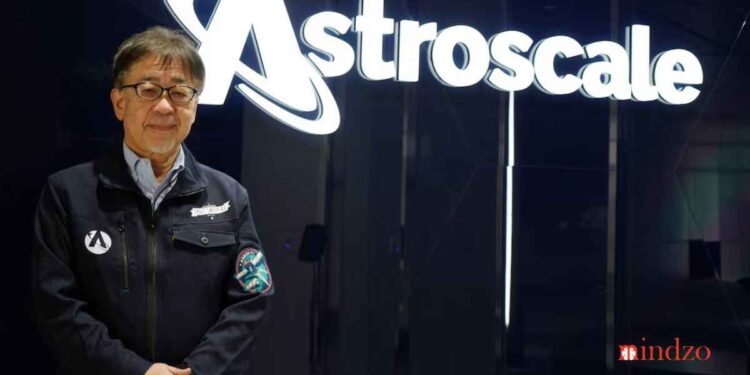Understanding the Space Debris Problem
Japan’s Astroscale Partners with India’s Digantara, Bellatrix Space debris, also known as space junk, consists of defunct satellites, old rocket parts, and fragments from past space missions. These objects pose a severe threat to operational satellites and even astronauts aboard the International Space Station (ISS). Think of it like having broken cars scattered across a highway—eventually, a crash is inevitable.
Who is Astroscale?
Founded in 2013, Astroscale is a Japanese space company dedicated to space sustainability. Their mission is to remove dangerous debris from Earth’s orbit using advanced robotic technology. With missions like ELSA-d, Astroscale has demonstrated its ability to capture and deorbit space junk, making it a global leader in orbital debris removal.
India’s Role in Space Sustainability
India has been rapidly growing in the space sector, thanks to ISRO (Indian Space Research Organisation) and private firms like Digantara and Bellatrix Aerospace. With increasing satellite launches, India recognizes the urgent need for sustainable space practices.
Meet Digantara: India’s Space Surveillance Specialist
Digantara is an Indian startup specializing in space situational awareness (SSA)—a crucial aspect of tracking and predicting space debris movement. Their proprietary Scotty Ground Station helps monitor satellite activity and identify threats from space debris.
Bellatrix Aerospace: Propelling Space Innovation
Bellatrix Aerospace is known for its advanced electric propulsion systems, which enhance satellite longevity and efficiency. By collaborating with Astroscale, Bellatrix aims to integrate sustainable propulsion solutions for better space debris management.
The Need for a Strategic Partnership
As satellite launches increase, space junk accumulation becomes a pressing issue. Astroscale’s expertise in debris removal, combined with Digantara’s tracking capabilities and Bellatrix’s propulsion systems, forms a perfect synergy to tackle the problem effectively.
How Astroscale, Digantara, and Bellatrix Plan to Collaborate
- Astroscale will focus on actively removing space debris.
- Digantara will provide real-time tracking and data on debris movement.
- Bellatrix Aerospace will develop advanced propulsion systems to aid in efficient deorbiting processes.
Together, they plan to launch missions that track, capture, and deorbit space debris, making Earth’s orbit safer for future space missions.
Potential Challenges in Space Debris Removal
- Technical limitations: Capturing moving objects in space is highly complex.
- Cost constraints: Developing and deploying debris removal missions is expensive.
- Policy barriers: Global cooperation is needed to regulate and support debris removal efforts.
Impact on Global Space Policies
This partnership could influence global space regulations, encouraging new policies on space debris mitigation. Countries may introduce stricter guidelines for satellite end-of-life management.
Future of Space Sustainability
With collaborations like Astroscale, Digantara, and Bellatrix, space sustainability can become a reality. Advancements in AI-driven tracking, autonomous robotic removal, and eco-friendly propulsion systems will lead to cleaner and safer orbits.
What This Means for India’s Space Industry
This collaboration places India at the forefront of global space sustainability efforts. It enhances India’s reputation in space surveillance, propulsion technology, and orbital sustainability.
How the General Public Benefits from This Partnership
A cleaner orbit means:
- Safer satellite communication (better GPS, internet, and weather forecasting).
- Lower risk of space accidents impacting global space missions.
- Sustainable future for space exploration, paving the way for commercial space travel.
The Road Ahead: What to Expect?
The next few years will witness joint test missions, new policy frameworks, and innovative space tech developments. The success of this partnership could serve as a blueprint for future international collaborations in space sustainability.
Conclusion
Japan’s Astroscale Partners with India’s Digantara, Bellatrix collaboration with India’s Digantara and Bellatrix Aerospace is a groundbreaking step towards solving the space debris crisis. By combining expertise in debris removal, tracking, and propulsion, this partnership has the potential to revolutionize space sustainability. As space exploration grows, such collaborations will ensure a cleaner, safer orbit for future generations.
FAQs
1. Why is space debris a major concern?
Space debris can collide with operational satellites, causing damage and disrupting services like GPS, communication, and weather monitoring.
2. How does Astroscale remove space debris?
Astroscale uses robotic arms and magnetic docking technology to capture and deorbit defunct satellites and debris.
3. What is Digantara’s role in this partnership?
Digantara specializes in space situational awareness (SSA) and will provide real-time data on debris movement to support removal operations.
4. How will Bellatrix Aerospace contribute to space sustainability?
Bellatrix Aerospace will develop eco-friendly propulsion systems to help satellites deorbit safely after completing their mission.
5. What impact will this collaboration have on the space industry?
This partnership will enhance global space debris management efforts, influence policy changes, and promote sustainable space exploration.




















